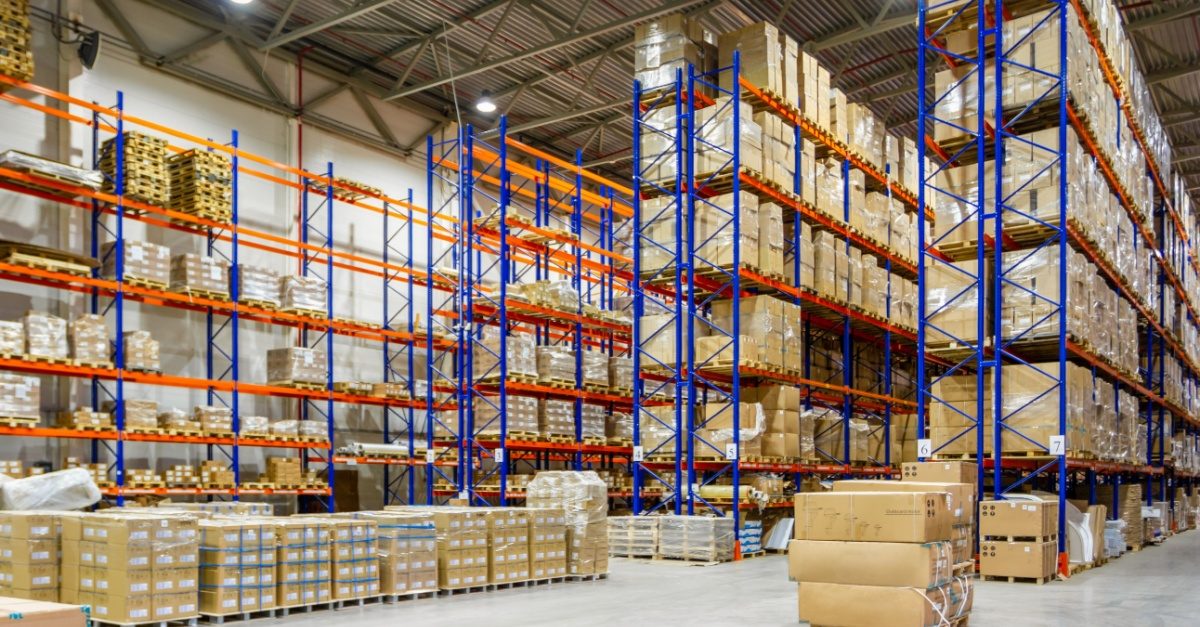
The Role of Advanced Technologies and Sustainable Practices in Modern Warehouse Management
Warehouse management plays an important role in enhancing supply chains and improving logistics efficiency in the ever-changing world of global trade. Advanced warehouse management systems are essential for linking production and delivery and are a key priority in modern procurement and manufacturing processes. Whether dealing with busy ports or sophisticated import-export networks, these systems are necessary for streamlining operations and enhancing business performance.
With the increasing demands for speed and accurate operations, there is a rising importance of WMS technologies in shaping leadership and management strategies across multiple industries. They ensure the seamless integration of supply chain components and offer precious data for strategic decision-making. By adopting the new advancements in warehouse management, businesses improve their inventory control, reduce operational costs, and ensure timely order fulfillment. Thus, the warehouse management sector is a fundamental part of logistics and a revolutionary thing driving the future of global commerce.
The rise of e-commerce boosting warehouse management for better inventory accuracy
Nowadays, there is a notable increase in the use of warehouse management systems due to the rapid growth of the e-commerce sector. This trend results in improved store-level inventory accuracy and expanded order fulfillment options. Retailers focusing on e-commerce are transforming their warehouses and significantly investing in advanced in-store WMS solutions to meet the evolving demands of the expanding e-commerce sector.
For example, in May 2022, Wabash introduced a technology-driven Wabash Parts distribution network. This initiative integrates and expands Wabash’s parts distribution across all its product categories, making it easier to scale rapidly and enhance e-commerce abilities. As a result, it stimulates growth in the warehouse management market.
The surge in e-commerce sales is further boosting investment in warehouse management systems because they offer excellent inventory tracking and traceability capabilities. According to the Annual Retail Trade survey by the Census Bureau, e-commerce sales showed a significant increase of $244.2 billion in 2020, representing a 43% rise from $571.2 billion in 2019 to $815.4 billion in 2020. This robust e-commerce growth highlights the accelerating demand for advanced warehouse management solutions.
Revolutionising warehouse management with cutting-edge digital technologies
In the thriving domain of e-commerce, warehouses are increasingly adopting advanced digital solutions to enhance performance and accuracy. With the e-commerce enterprise continuously changing, there is a growing awareness of the use of technology to streamline operations and minimise errors. The MHI Annual Industry Report 2024 predicts that a huge majority (around 88%) of professionals in the field assume digital supply chains to expand considerably in the coming years. This surge in digital integration is anticipated to transform warehouse management systems by utilising real-time data to improve tracking and overall process efficiency.
Digital Technologies
Digital technologies are leading the way in this change, providing advanced tools that integrate warehouse operations with broader supply chain systems. Artificial Intelligence plays an essential role by offering predictive analytics and automation. For instance, AI-driven robots manage inventory levels more accurately, thus reducing human error while also improving picking efficiency. In addition, these robots based on machine learning algorithms anticipate fluctuations in demand and adjust stock levels accordingly.
The Internet of Things
The Internet of Things further enhances these abilities by connecting various components in the warehouse. Real-time inventory tracking is done by smart sensors and RFID tags, presenting instant updates on stock movements and conditions. For example, IoT-enabled temperature sensors ensure that perishable goods are stored under ideal conditions, therefore lowering spoilage and waste.
Moreover, the use of digital twin technology is essential for developing a virtual replica of physical warehouse systems. This technology enables real-time monitoring and simulation of warehouse operations. An important application of digital twins is in modeling warehouse layouts and workflows, which helps managers test changes and improve processes before they are put into practice.
Therefore, the demand for advanced systems is increasing as warehouse management becomes more interconnected with supply chains and consumer needs. The integration of AI, IoT, and digital twin technologies improves operational efficiency and offers a greater understanding of the complete supply chain. This transition to digitalisation is driving heightened demand for smart warehousing solutions, facilitating a more connected and flexible supply chain network.
Transforming warehouse management with sustainable solutions
Sustainability is becoming an important aspect of warehouse management as businesses aim to lessen their environmental footprint. Key actions include decreasing carbon emissions and prioritising recycling, reusing, and waste treatment. Legislation plays an essential role in guiding these initiatives. For instance, the EU’s Waste Framework Directive establishes stringent standards for recycling and waste reduction, encouraging warehouses to undertake green practices.
Shipment Zero
A prominent example is Amazon, a US-based multinational technology corporation, implementing the “Shipment Zero” initiative to achieve net-zero carbon emissions for 50% of its shipments by 2030. This ambitious goal includes enhancing logistics productivity, investing in renewable energy projects, and refining recycling practices. By adopting these strategies, warehouses comply with regulations and make a remarkable reduction in their carbon footprint and environmental impact, promoting a more sustainable logistics industry.
Nevertheless, a recent McKinsey study found that 63% of warehouse operators are now integrating sustainable practices, such as using energy-efficient lighting, reducing waste, and obtaining green building certifications. This move toward sustainable warehousing supports corporate social responsibility while also helping to reduce operational costs.
LP Logiscience leads the way in sustainability with advanced solar-powered warehouse
LP Logiscience, a division of the renowned Liladhar Pasoo Group, introduced a state-of-the-art solar-powered warehouse in Bhiwandi, Mumbai on March 6, 2024. Covering an area of 15 acres, this high-quality facility offers 500,000 sq. ft. of storage space. With a capacity of 30,000 pallet positions, it is considered one of the biggest 3PL multiclient warehouses in India. The warehouse is enhanced with modern green technologies such as solar panels, rainwater harvesting systems, and an electric vehicle fleet for sustainable distribution.
IMCD, a global leader in specialty chemicals, has selected this green warehouse for its storage needs, highlighting its commitment to sustainability. The warehouse produces 610,000 units of solar energy annually, reducing about 493,000 kilograms of CO2 emissions. LP Logiscience is establishing a new benchmark for eco-friendly warehouses in India by incorporating advanced technology and environmental responsibility.
Winding up
Warehouse management is important for optimising supply chains and is evolving through digital and sustainable innovations. The integration of AI, the Internet of Things, and green technologies enhances operational performance while reducing environmental impact. These developments establish new benchmarks for performance and sustainability, shaping the future of green and eco-friendly warehouse operations.
Warehouse management is essential for enhancing supply chain and logistics performance, adapting to the ever-changing global trade environment. Advanced technologies improve inventory management, lower operational costs, and ensure timely order fulfillment. The rise of e-commerce and digital technologies, consisting of AI and IoT, is expected to establish new standards for environmental consciousness in warehouses.

Article By Harshada Dive
Author’s Bio: – Harshada Dive is a computer engineer who loves experimenting with trending topics and is passionate about presenting contemporary trends creatively to her audience. Her writing skillfully integrates knowledge and creativity, reflecting her dedication to creating engaging and thoughtful content. Outside of her professional pursuits, Harshada enjoys gardening and listening to inspirational podcasts.

With such importance placed on the success of warehousing within a business, at the Institute of Supply Chain Management (IoSCM), we offer a range of professional qualifications, carefully designed to match modern business’ needs and upskill professionals at all stages of their warehousing careers.
